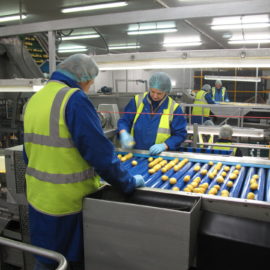
The top 3 benefits of Automated Vegetable Handling | Making labour less laborious
Almost four months after the UK voted to leave the European Union, it is no secret that the agricultural and food manufacturing industries have questions about how the Brexit vote will effect vegetable growers and packers long-term, not just in terms of availability of migrant labour, but also in terms of EU subsidies and regulations.
As Sally Smith discusses in the latest edition of Potato Review, “The chancellor’s announcement that agricultural support would continue until 2020, though welcomed, has done little to allay concerns surrounding when and how the enactment of Article 50 is likely to be…. The availability of migrant labour, upon which both growers and processors depend, also carries another big question mark, if free movement does not continue, and especially so in the potato seed sector.”
With a high percentage of migrant workers within the vegetable growing and processing industries, and a majority of which are considered not only to be excellent workers, but also in many cases have advanced in employment status, the hope is that a sensible solution will emerge which will allow those already settled in the UK to continue to feel at home here.
Sally also notes; “Arch Brexiteer Guisela Stuart MP is heading up a research project for the British Future think tank, on how to protect migrant rights after the UK leaves the EU. As a cross-party inquiry, it will examine what kind of legal status could be granted to EU citizens in the UK. Ministers too, have indicated that they want to protect EU citizens’ status – as long as reciprocal deal can be negotiated.”
Although the unsettling that Brexit may pose to migrant labour is sparking a somewhat imminent prompt to consider business models, this aside, labour and its associated costs, whether by migrant or non-migrant workers, is a key consideration for growers and packers looking to increase the efficiency and productivity of their vegetable handling systems.
Whilst it is never the intention of the employer to remove or replace a good, loyal and longstanding member of staff, in many cases, labour for more ‘unskilled’ field and packing roles for example, is sourced from agencies, and is therefore an overhead that is well justified for reduction.
The cost of labour in itself can often be enough reason to consider an upgraded and more automated vegetable handling line. And that’s not to mention the other variables that come with running a dynamic workforce, from issues of inconsistency due to tiredness, time off for illness, holidays etc.
With this in mind, we’re discussing some of the main benefits that recent Tong customers are reporting as a result of a more automated vegetable handling process.
Increased Throughput
Whilst gentle handling to ensure added value to crop is always one of the main considerations when designing a new vegetable handling line, increasing productivity and minimising labour requirements is always one of the key drivers for equipment updates. In most cases, a reduction in labour requirements coupled with an increase in automation, means the line can run more continuously for maximum throughput.
On a single machine level, advances in bin dumping equipment for example, have allowed a more continuous flow of crop to be achieved onto the vegetable handling line, for increased throughput with minimum labour requirements. Tong’s side-eject bin dumper has been a popular choice over the years as it allows bins to be reloaded into the dumping cradle before the empty bin is removed, meaning more continuous operation and reduced forklift movement. The bin dumping process can operate continuously with only one forklift driver, whereas single bin dumpers can be left waiting for the new bin whilst the old bin is removed. In this instance, a single dumper require more than one forklift driver for continuous operation – as one removes the empty bin, the other feeds the full bin straight into the dumping cradle. And now, the latest, all electric bin dumpers available of the market, like Tong’s Revolver bin dumper, have been designed to not only increase efficiency but also to increase throughput and reduce forklift movement by ejecting empty bins away from the cradle for more continuous bin changing.
Looking at labour savings and increased throughput on a larger scale, when you look at an advanced optical sorting machine like the Visar, which has recently made its UK debut sorting carrots at Poskitts in Yorkshire, the requirement for manual sorting is virtually removed entirely, meaning not only a significant saving in labour costs, and all the associated variables of a manual workforce, but also the option for the line to run continuously outside of normal working hours for maximum throughput. Reduced labour requirements, resulting in reduced labour costs, whilst maximising throughput.
Increased Accuracy/Consistency
As vegetable handling equipment advances in its capabilities, the more consistent results we see from automated handling processes, particularly when it comes to grading and sorting crop. If we take the Visar optical sorting machine as an example again (largely because its key benefits are exactly what we are talking about in this blog!), the unique software of the machine is based on an advanced design which allows the system to work as if you were sorting manually, but with greater capacity and consistency.
Whilst many optical sorters on the market still require some level of manual sorting within the process, the unique auto-learning software of the Visar really sets it apart from other optical sorting systems, as it removes the need for tedious adjusting and programming. With its 360 degree intelligent camera system, the machine learns what defects are acceptable and not, resulting in very accurate and consistent grading with no need for manual sorting.
Unlike a manual workforce, the machine does not get tired, it is not subjective, it does not let good carrots go to waste due to uncertainty or diverted attention. Instead, the machine learns what defects are acceptable and not, and therefore technology like this ensures better grading results whilst significantly reducing labour costs.
The same can be said for other vegetable handling equipment, that, when integrated into a line can automate processes to improve consistency, increase productivity and reduce labour costs. Examples include integrating a destoner within a washing line to automate the stone removal process, making it more reliable than removing stones manually. Adding an effective separator at the start of the dirty crop handling process, like Tong’s EasyClean separator, meaning much of the soil and debris that is listed with crop during harvest can be effectively removed, meaning fewer people required on inspection areas.
Reduced Waste
It’s fair to say that much of the manual work involved in the vegetable handling process can be repetitive and it is often said that it can be easy for workers in the field and on packing lines to ‘switch off’! It’s not uncommon for our customer to say that they lose crop to waste that could have made the grade.
Again, when we look at the Visar, not only does it save money by removing the need for manual sorting, but it also achieves more value and hence more money from your crop, by allowing the user to set defined parameters for each grade, ensuring more consistent sorting and more saleable crop. By using automated sorting rather than manual sorting, you are able to remove the subjective elements that come with manual sorting, meaning a more efficient and productive handling line.
Reduced waste is not only a benefit of an automated process but also an advantage of upgrading your handling equipment to newer, gentler models. As equipment has developed over the years, designs have advanced to ensure the gentlest handling of crop. Whether it is a 160 degree bin dumper gently dumping crop with minimal drop, the latest grading modules set to the right speed and agitation or Tong’s EasyFill bin filler with unique doorstop belt for exceptionally gentle handling. Gentle handling ensures minimal bruising and minimal waste, another reason for considering newer, automated models.
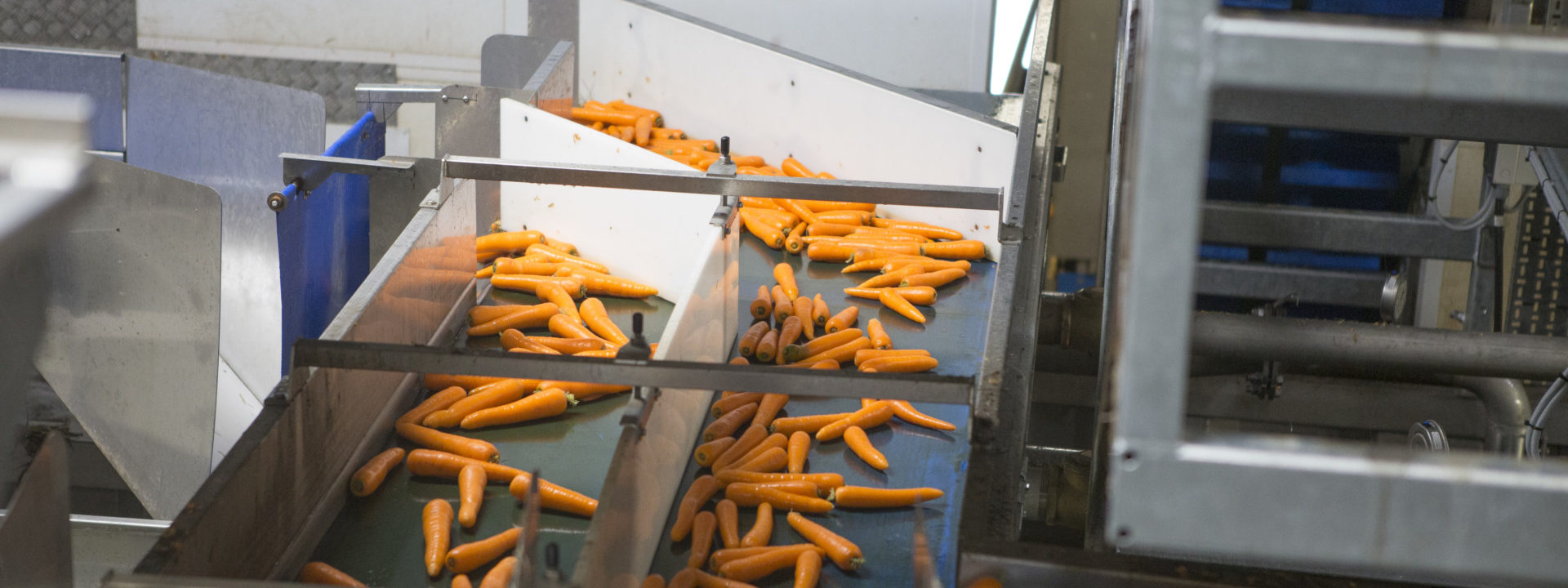
So, Brexit or no Brexit, whether the availability of migrant workers changes or not, there’s no getting around the fact that with an increasing minimum wage, labour costs are steadily on the up, whilst sourcing suitable labour for the job continues to pose its own challenges.
Upgrading your vegetable handling systems with a view to reducing the reliance on manual processes, and essentially cutting labour costs, in many cases results in a very noticeable bottom-line saving, contributing significantly to a very powerful return on investment, and a sound case for embracing the advanced and automated handling equipment that’s now available on the market.
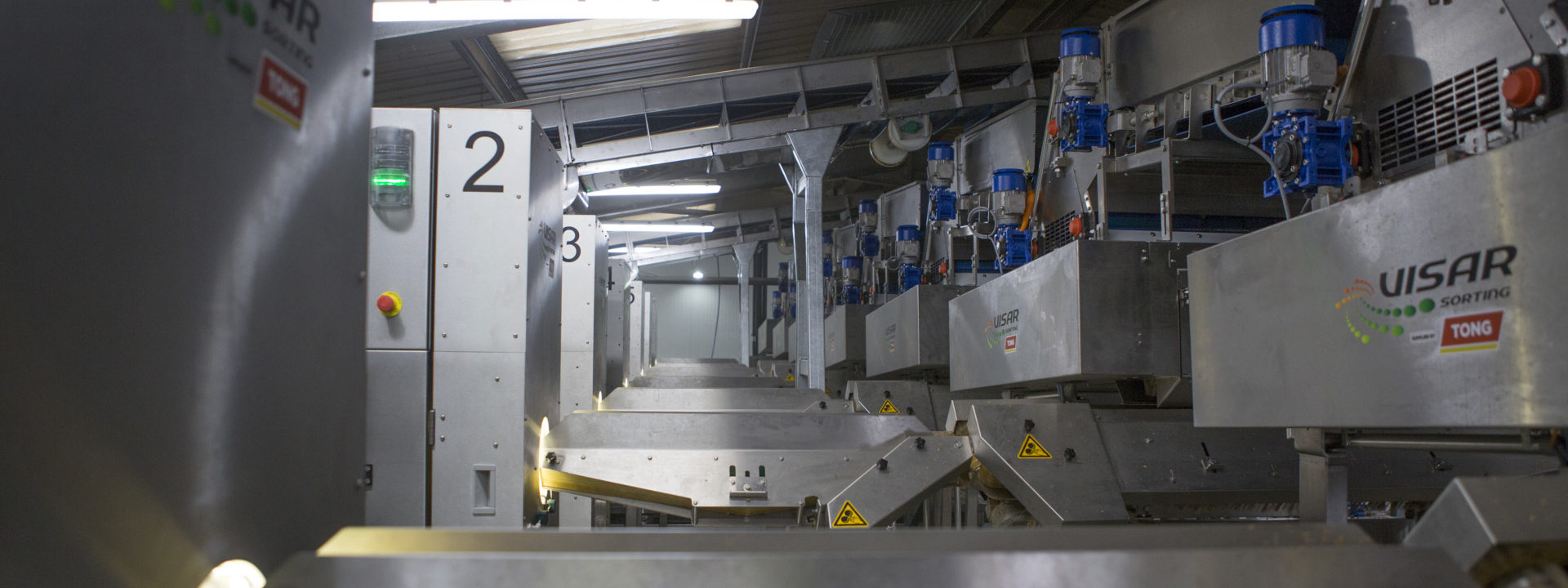
For further reading on the ‘potential’ impact of Brexit on migrant workers see below links for more independent articles:
Farmer’s Weekly – Scheme for seasonal migrant farmworkers looks likely – October 2016
The Independent – Brexit ‘could mean end of fresh British fruit and vegetables’, warns leading farmer – October 2016
FoodManufacture.co.uk – Brexit: Top three challenges for food manufacturers – October 2016
UK Parliament – The effect of Brexit on agriculture and fisheries in South West England – October 2016
AHDB Brexit Analysis/Report – September 2016
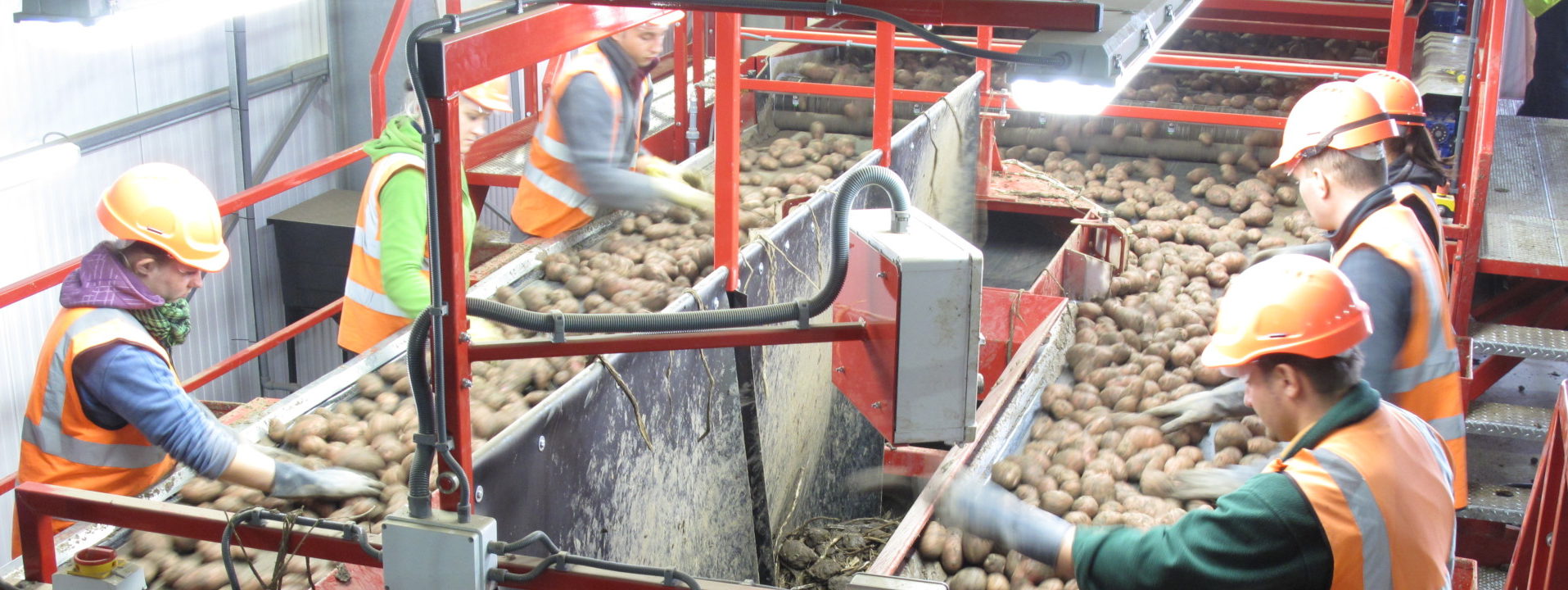
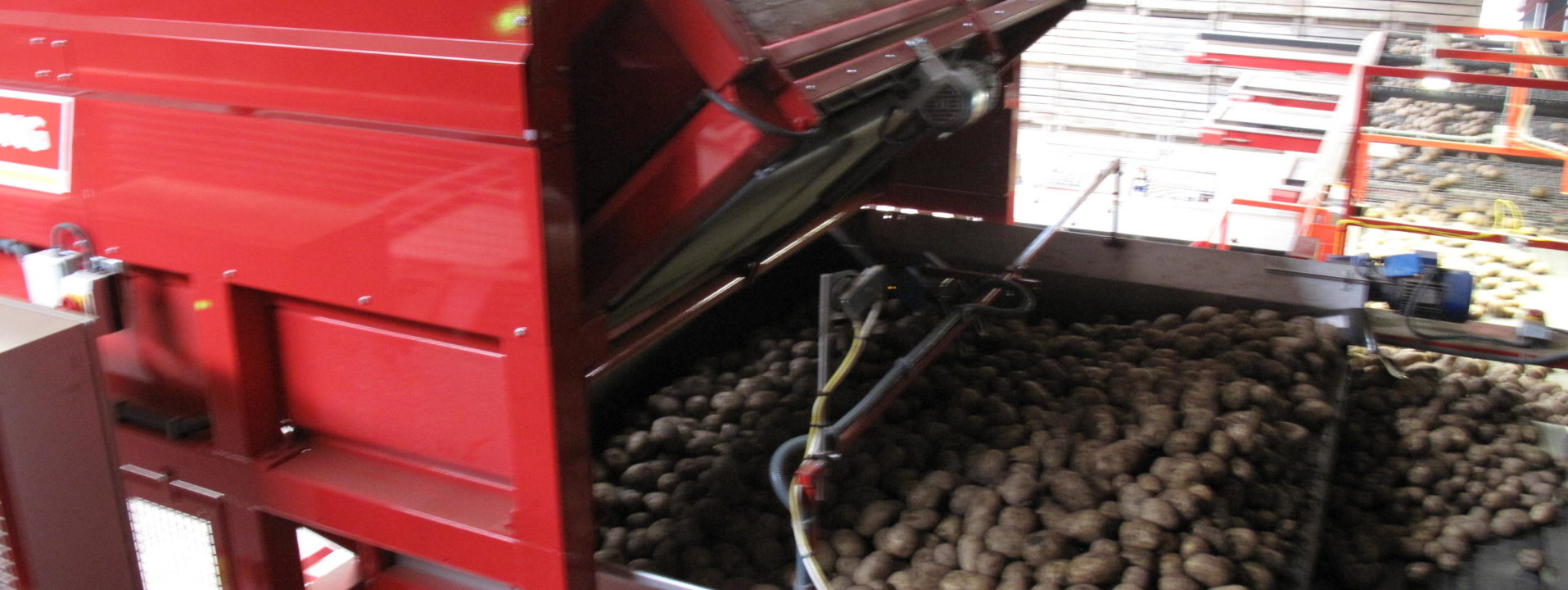
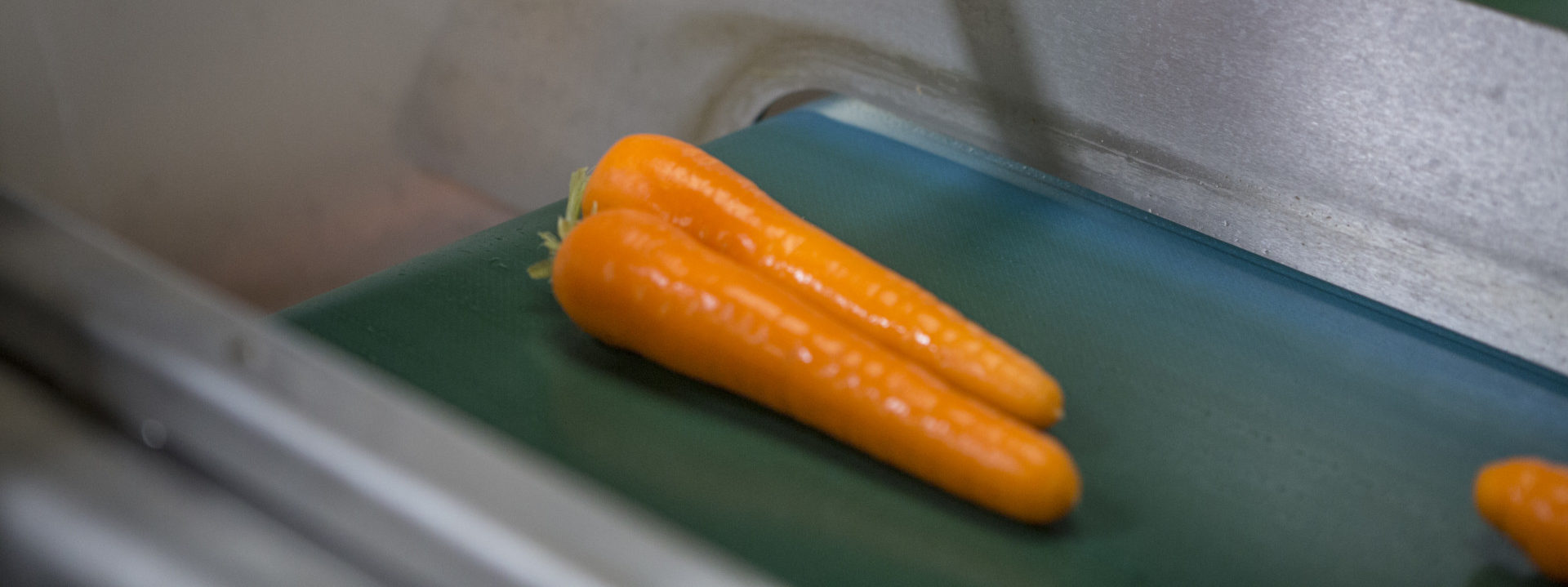
Share this post